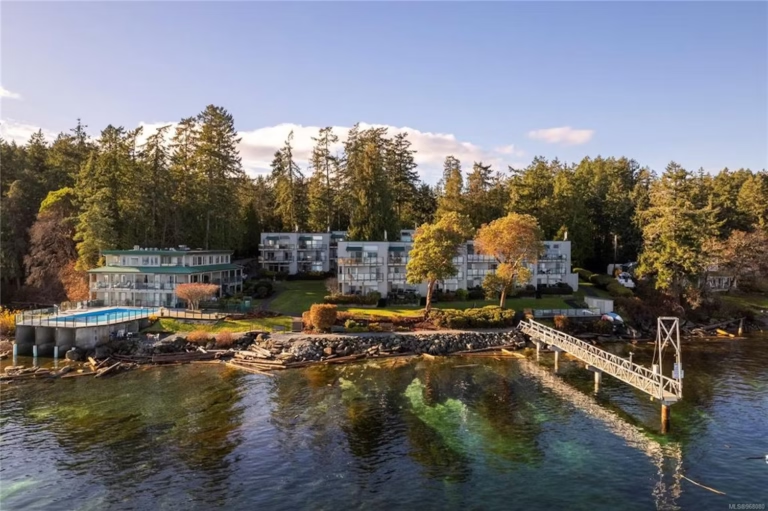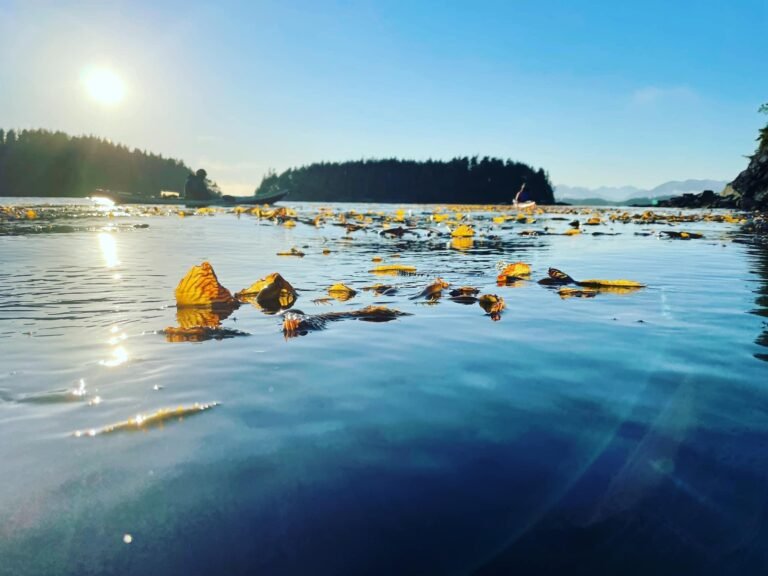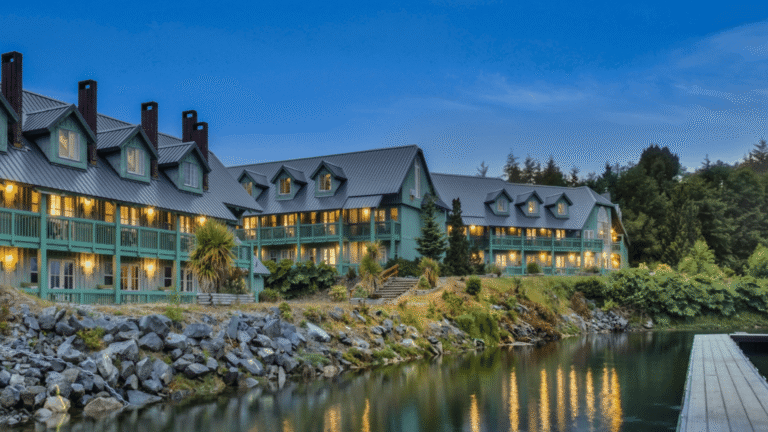Three national parks, Mount Revelstoke, Glacier, and Yoho, present themselves in succession beside Highway 1 in the eastern reaches of the Southern Interior. Being national parks, they are by definition big, and you’ll find much to do in each park. Few places on earth offer such geographically diverse and naturally preserved outdoor experiences – all within the borders of one great province.
Similar in its geographical features to Glacier National Park, Mount Revelstoke National Park is extremely beautiful, with a mile-high rolling alpine plateau and spectacular views of the Monashee and Selkirk Mountains. The park offers a drive into the country like no other – this is one of the few places in Canada where it is possible to drive right into a subalpine meadow. Summit Road winds 16 miles (26 km) up to the top of this 6,094-foot (1860-metre) mountain. Unfortunately, this trip is possible only during the summer. Mount Revelstoke National Park offers no developed camping facilities, although a few primitive backcountry sites are available. This park welcomes hikers, cross-country skiers, and picnickers at a variety of day-use areas along Summit Road and Highway 1 as they weave through the park.
Camping
While there are no road-accessible campgrounds in Mount Revelstoke, national park campgrounds are found at Illecillewaet and Loop Brook in Glacier National Park, 70 km to the east. Several commercial campgrounds are found in Revelstoke. In addition, two provincial park campgrounds in Martha Creek Provincial Park and Blanket Creek Provincial Park are located within 20 minutes of Revelstoke.
There are two designated backcountry campgrounds, at Eva and Jade Lakes, also near the summit. Campers at these sites must use the tent pads provided. There are outhouses, and food storage poles to place food out of reach of bears. Open fires are not permitted in the park. Backcountry camping passes are required.
There are two backcountry shelters in Mount Revelstoke National Park. Caribou Cabin is open in winter only and is located 16 km up the Meadows-in-the-Sky Parkway. There is a fee per person per night to use this cabin. Contact the office of Mount Revelstoke and Glacier National Parks. The Eva Lake cabin is a very primitive shelter with no amenities that sleeps 8-10 persons. There is no charge to use this shelter, but most people will find camping in their own tent to be more comfortable!
Hiking
There are some easy rambles, all of which begin from trailheads along Summit Road as it climbs the flanks of Mount Revelstoke. Trails include the Eva Lake Trail (easy; 7.5 miles/12 km return), which runs through both subalpine and alpine tundra zones. The backcountry cabin at Eva Lake can be used, but visitors must register with the park warden before using it overnight. By far the most popular trail in the park is also its shortest trail. The Mountain Meadows Trail (easy; 0.6 mile/1 km return) leads from the south side of the Heather Lake parking lot, at the upper end of Summit Road, through nearby subalpine meadows that run riot with wildflowers in late July and early August. Walk through a living museum on a short boardwalk that takes you into the heart of the park’s old-growth forest, among 800-year-old cedar trees. Signs along the way relate the importance of functioning ecosystems. Benches are provided so you can relax and breathe in the serene forest atmosphere. The trailhead is at the Giant Cedars Picnic Area.
Skunk Cabbage Trail leads through a fragile wetland that is home to the strange skunk cabbage plant, and a stopover for migrating birds. Naturalist Notebook signs help you identify the plants and animals you see along the way. This fascinating place is at its best from May through July. The trailhead is at the Skunk Cabbage Picnic Area. You can hike longer and harder – if you want to – by following Lindmark Trail (moderate; 10 miles/16 km return) for a day, a route that leads to Eagle and Balsam Lakes, which are pleasant resting spots. You’ll find the most challenging hiking in the park on the Summit Trail (difficult; 16 miles/20 km return). Early residents blazed this hiking trail a century ago. Note: You must obtain a backcountry pass to explore in national parks.
Birding
May and June are the best months for birdwatching. There’s a good chance that you’ll see Steller’s Jay, Chestnut-backed Chickadee, Western Tanager, American Dippers, Magnolia Warbler, Black-headed Grosbeak, Rufous Hummingbird, Yellow Warbler, Townsend’s Warbler, Common Yellowthroat, Merlin, and several species of Empidonax flycatchers along the Skunk Cabbage Boardwalk Trail.
A drive up the Meadows-in-the-Sky Parkway in July will reveal species characteristic of the major life zones, including the grand-slam in chickadees: Black-capped, Mountain, Boreal and Chestnut-backed. Others include: MacGillivray’s Warbler, Blue Grouse, Swainson’s Thrush, Hermit Thrush, Pine Grosbeak, Red Crossbill, Black and Vaux’s Swifts, Three-toed Woodpecker, Olive-sided Flycatcher, Gray Jay, Fox Sparrow, Northern Hawk-Owl, Golden Eagle, White-tailed Ptarmigan, Water Pipit, and Rosy Finch.
The foot of Mount Revelstoke, in the Ski Chalet area is home to Nashville Warbler, American Redstart, Calliope Hummingbird, varied Thrush species, and the Western Tanager.
Mountaineering
The granite peaks of the Clachnacudainn Range (pronounced CLAK-na-KOO-din) east of the summit of Mount Revelstoke offer good scrambling and Class 4 climbing. A locally popular rock face known as the Lauretta Slabs is accessible within a short distance of the Trans-Canada Highway. Climbing requires special skills and equipment.
Mount Revelstoke Internment Camp
During World War I, under the War Measures Act, internment camps were established at 24 locations across Canada for the detention of about 8,000 people, mostly Ukrainians and other Europeans, who were detained because they were considered to be enemy aliens. One of these camps was located in Mount Revelstoke National Park, and is now commemorated with the Mount Revelstoke Internment Camp Commemoration along the Meadows-in-the-Sky Parkway. More information on the Mount Revelstoke Internment Camp.
Hours of Operation
The Meadows-in-the-Sky Parkway is open only during the snowfree season. However, in spring, visitors can drive progressively further up the road as the snow melts. When the Mount Revelstoke Summit is snowfree, usually by the third week in July, the Summit Shuttle Bus transports visitors between the parking area at Balsam Lake and the summit area from 10:00 am to 4:20 pm.
The Parkway is gated at the base of the mountain, just off the Trans Canada Highway. The gate is unlocked and our welcome kiosk is staffed from 7 a.m. until 10 p.m. from mid-June until Labour Day each year. After Labour Day, the kiosk is still staffed from 9 a.m. – 5 p.m. After the welcome kiosk closes at the end of October, visitors seeking information about Mount Revelstoke National Park must visit our office in the City of Revelstoke. This office is open year-round from Monday to Friday, 8:30 till noon and 1 p.m. until 4:30. It is located in the Post Office building at 300 – 3rd Street West in Revelstoke.
The Skunk Cabbage and Giant Cedars Nature Trails, located along the Trans Canada Highway section of Mount Revelstoke National Park, are opened as early in the year as the snowpack allows. Delays in trail openings may occur when bears are present in the area or when snow has caused damage to trail structures. Generally these trails are open by the Victoria Day weekend in May and remain open until the autumn snowfall.
The booklet Footloose in the Columbias, which contains information on access routes, is available from the Friends of Mount Revelstoke and Glacier at their store in the Rogers Pass Centre, or at their summer outlet in the Mount Revelstoke Firetower.
A final note about national park permits: a park pass is required for all visitors to national parks. This pass is available at the park gates or, for the credit-card endowed, by calling 1-888-773-8888. You can choose between an annual permit to all 28 National Parks in Canada, a Discovery Package, which includes entry to 28 participating National Parks and 74 National Historic Site; or a daily-entry permit in any of the four contiguous mountain national parks (Banff, Jasper, Yoho and/or Kootenay). In addition, there is a daily camping fee in summer and a weekly or annual charge for a fishing permit. Children under 16 may fish without a permit when accompanied by a licenced angler.
The city of Revelstoke is at the park’s western entrance. Park information is available at Rogers Pass, about 43 miles (70 km) east of Revelstoke, or about 50 miles (80 km) west of Golden.
Nearby Regions & Towns
Park Notices
More Information
Parks Canada – British Columbia
Website: www.pc.gc.ca






